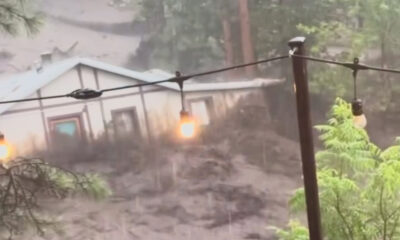Reviews
Renting to Military Tenants: What Landlords Need to Know

Most landlords don’t give much thought to what their tenants do for a living—until it matters. A good credit score, clean background, and steady income usually check all the boxes. But if your prospective tenant is serving in the military, those boxes come with a few extras you can’t afford to ignore.
Military tenants are protected under the Servicemembers Civil Relief Act (SCRA), a federal law that offers powerful legal protections, especially around evictions, lease terminations, and court actions. That means your usual rental process may not be enough, and skipping a crucial step could lead to legal trouble.
Before making decisions like sending an eviction notice or filing for a default judgment, you need more than just a rental agreement. You need clarity on the tenant’s active duty status.
So, how do you find out if a tenant is actively serving? And what are your actual obligations as a landlord? That’s exactly what we’re about to uncover.
Legal Importance of Verifying Military Status
When renting to a tenant who may be serving in the military, you can’t treat legal actions like lease terminations or evictions as routine. There’s a higher standard involved—one that demands caution and compliance.
That’s because the Servicemembers Civil Relief Act gives active-duty service members specific legal protections that civilian tenants don’t have. When dealing with lease terminations, evictions, or legal notices, landlords must take extra precautions if a tenant is serving in the armed forces, as military verification is a crucial step that helps determine whether the SCRA applies and whether you need court approval before proceeding.
Failing to verify military status can result in more than just a dismissed case. It could lead to fines, delays, or a reversal of a default judgment. By confirming a tenant’s active duty status before taking legal steps, you’re not just checking a box. You’re actively protecting your rights and complying with federal law.
How to Conduct Military Verification
Verifying military service might not be the flashiest part of being a landlord, but it’s one of the most important if your tenant is serving. Done right, it keeps you compliant and protects both parties involved. Here’s how you can handle it:
- Start by collecting accurate personal details such as the tenant’s full name, date of birth, and Social Security number
- Use a trusted third-party verification service to check the Defense Manpower Data Center for current active duty status
- You may also request to see a government-issued military ID if available
- If the tenant is a veteran, documents like a DD214 can help confirm their prior military status
- Always ensure submitted documents include the tenant’s name, branch of service, and clear duty status
- Keep a copy of all verification results and related correspondence as part of your records for legal protection
Following these steps ensures you comply with SCRA while staying prepared in case of questions or disputes down the road.
The SCRA Protections for Military Tenants
Things can get complicated quickly when a tenant in uniform is involved. If you’re not up to speed on their legal protections, even well-meaning actions could backfire. That’s why it’s essential to know what the Servicemembers Civil Relief Act offers and what it expects from you in return.
Under the SCRA, military tenants are shielded from eviction without a court order, even if they’ve defaulted on rent during active duty. These protections extend to lease terminations, where service members can legally end their rental agreement by providing written notice and a copy of their orders, typically 30 days in advance. There are also limits on interest rates for certain debts, offering additional support during their service.
As a landlord, understanding these rules isn’t just good practice but a legal obligation. Knowing how SCRA protections work helps you handle these situations properly and ensures your actions remain within the bounds of federal law.
Tools and Services Available for Military Verification
Not every tenant comes with the same legal considerations, and when you’re renting to someone in the military, guesswork isn’t an option. The good news is, there are trusted tools designed to help you confirm military service quickly and accurately—no red tape, no legal blind spots. Here’s how you can verify a tenant’s status with confidence:
- Use the Defense Manpower Data Center to confirm active duty status with the tenant’s name and Social Security number
- Ask the tenant to request their service record through eVetRecs by signing in with an ID.me account and retrieving documents like the DD214
- Look out for military email domains such as @usmc.mil or @army.mil, which, while not official proof, can help support your verification efforts
- Ask if the tenant can verify through GovX, which confirms military affiliation through a secure and recognized platform
- Run a duty status check periodically, especially before starting any legal process, to avoid missteps and protect both your interests and the tenant’s rights
Using these tools streamlines your rental process and helps ensure you’re compliant with SCRA rules from day one.
Common Legal Pitfalls to Avoid When Renting to Military Tenants
Mistakes in rental management are usually easy to fix, but when they involve a military tenant, the stakes are higher and the margin for error is razor-thin. What may seem like a minor oversight could quickly spiral into a serious legal issue if federal protections are overlooked.
A common trap is moving too fast. For example, issuing an eviction notice or pursuing a default judgment without checking a tenant’s active duty status can violate the Servicemembers Civil Relief Act. Even a lease termination handled casually could cross legal lines if you haven’t taken proper steps. These aren’t just technical errors. They’re actions can result in court sanctions or financial penalties.
To avoid landing in legal hot water, slow down and take the time to verify military service before making any decisions. Stay informed about SCRA rules and how they impact your lease procedures. When the situation feels unclear, consulting a legal expert could save you from a much bigger problem later on.
Conclusion
Renting to military tenants requires more than a standard lease; it calls for attention to federal protections that shape how you manage each step. The Servicemembers Civil Relief Act outlines specific rules that apply only to active-duty tenants, and missing those details can lead to serious legal consequences.
You’re building more than just compliance by verifying military status, respecting lease termination rights, and staying aligned with legal requirements. You’re creating trust. Clear processes and informed decisions help protect everyone involved. In a rental world full of variables, knowing how to handle military verification sets you apart as a landlord who truly gets it.

-

 US News3 days ago
US News3 days agoAll 15 workers rescued after industrial tunnel collapse in Los Angeles
-

 Legal5 days ago
Legal5 days ago3 killed, 9 injured in shooting in Philadelphia
-

 World4 days ago
World4 days agoSeries of earthquakes strike near Guatemala City, causing injuries and damage
-

 US News4 days ago
US News4 days agoFlash flood emergency declared in Ruidoso, New Mexico
-

 Entertainment1 week ago
Entertainment1 week agoICE arrests Mexican boxer Julio César Chávez Jr. over Sinaloa Cartel ties
-

 Health1 week ago
Health1 week agoCambodia reports new H5N1 case in child, 8th human infection in a month
-

 Entertainment1 week ago
Entertainment1 week agoLiverpool soccer star Diogo Jota and brother killed in car crash in Spain
-

 Entertainment1 week ago
Entertainment1 week agoConnie Francis, singer of viral hit ‘Pretty Little Baby,’ hospitalized




